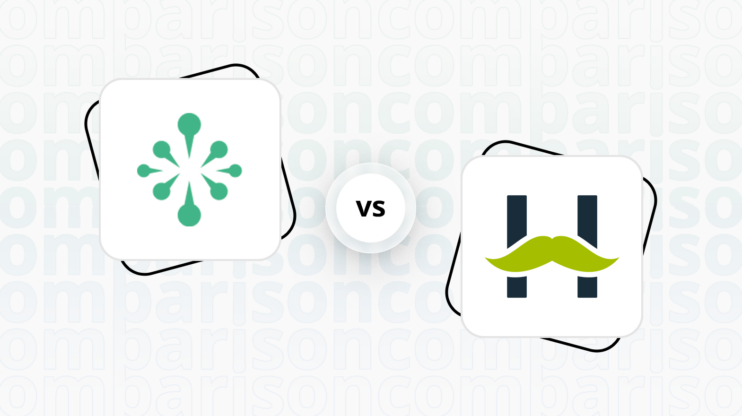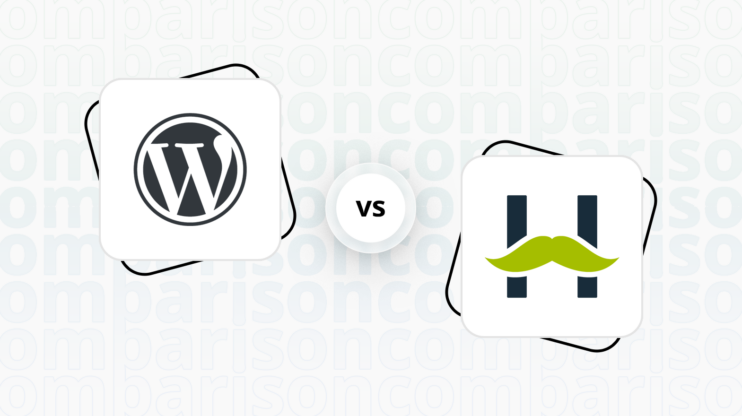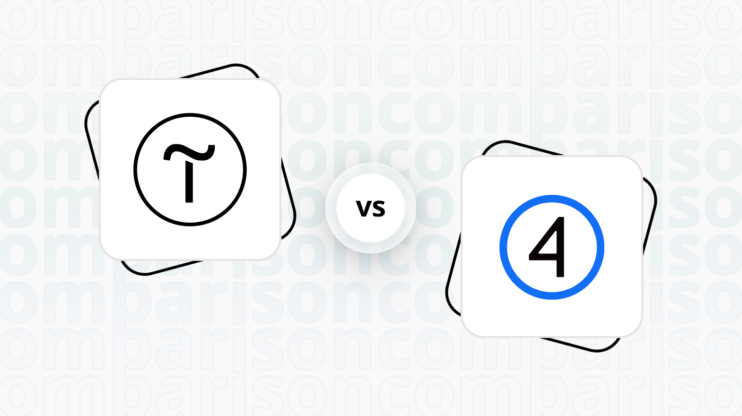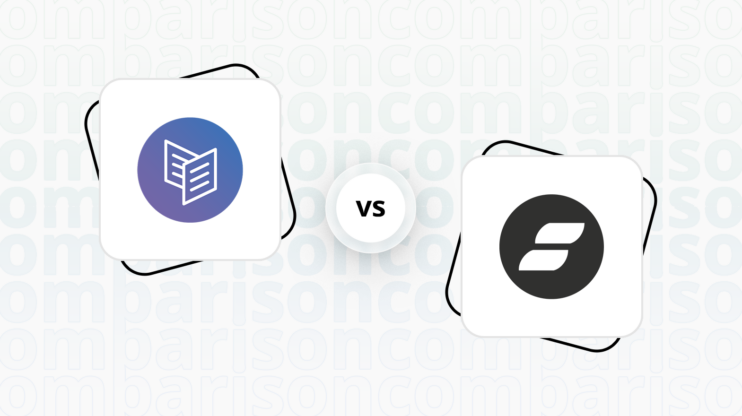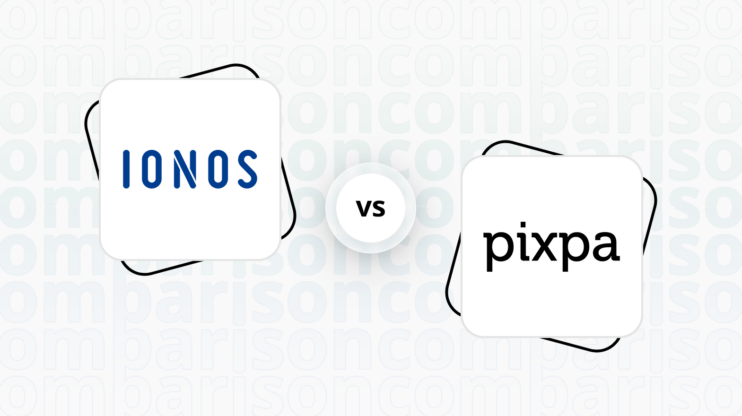Drupal vs Web.com: Final verdict
Drupal and Web.com both offer unique strengths, but they cater to different user needs and expertise levels.
-
Drupal (Overall Grade: 6.4/10)
is a powerful open-source CMS known for its flexibility and extensibility. It is ideal for developers and users who need a highly customizable platform for complex websites. Drupal excels in design functionalities, security, and user management, making it suitable for a wide range of websites, from personal blogs to large corporate sites. However, it has a steeper learning curve and may require more technical expertise to fully leverage its capabilities. -
Web.com (Overall Grade: 5.8/10)
is a user-friendly website builder aimed at those without coding expertise. It offers drag-and-drop functionality, a selection of pre-built templates, and robust customer support, making it accessible for beginners and small businesses. Web.com shines in ease of use, AI capabilities, and hosting quality, providing a straightforward solution for users looking to quickly establish an online presence without delving into complex customizations.

|

|
|
|---|---|---|
|
Design functionalities & templates |
7.8 |
6.4 |
|
Ease of use |
5.4 |
6.4 |
|
Ecommerce |
7.5 |
6.3 |
|
Website Editors |
7.5 |
6.6 |
|
Product testing options |
7.1 |
0.2 |
|
Price |
5.7 |
7.4 |
|
Hosting quality |
0 |
5.9 |
|
Website speed optimization |
6.4 |
5.8 |
|
Plugins and integrations |
8.6 |
6.7 |
|
Marketing features |
8.0 |
7.0 |
|
Customer support |
6.7 |
7.3 |
|
Security |
8.3 |
7.6 |
|
AI capabilities |
7.5 |
7.3 |
|
User Management |
9.1 |
5.2 |
Which one is the best for ecommerce: Drupal or Web.com?
 7.5
7.5
 6.3
6.3
Verdict
: Drupal offers extensive customization and flexibility for ecommerce, making it suitable for complex and large-scale online stores. Web.com, while user-friendly, is better suited for smaller, simpler ecommerce needs.
-
Drupal
: Known for its powerful and flexible ecommerce capabilities, Drupal is ideal for developers and businesses that require extensive customization. With features like advanced product management, customizable workflows, and a wide range of payment gateways, Drupal is well-suited for complex ecommerce operations. However, it has a steep learning curve and may require significant development effort. -
Web.com
: This platform is designed for ease of use, making it a good choice for small businesses and individuals who need to set up an online store quickly. Web.com offers essential ecommerce features like product listing, marketing tools, and payment gateway integration. However, it lacks the depth and flexibility of Drupal, making it less suitable for more complex ecommerce needs.
Which one is the best for informational and business websites?
 7.5
7.5
 6.5
6.5
Verdict
: Drupal is the superior choice for those seeking a highly customizable and flexible platform for informational and business websites, while Web.com offers a more user-friendly experience for beginners.
-
Drupal
: Drupal scores 7.5 for informational and business websites, making it a robust option for users who need extensive customization and advanced features. Its open-source nature allows for a high degree of flexibility, with thousands of modules and themes available to tailor the website to specific needs. However, it comes with a steeper learning curve, which might be challenging for beginners. -
Web.com
: Web.com, with a score of 6.5, is designed for users who prefer simplicity and ease of use. Its drag-and-drop functionality and pre-built templates make it easy to create and customize websites without any coding knowledge. While it may not offer the same level of customization as Drupal, it is a solid choice for those who prioritize ease of use and quick setup. When comparing Drupal vs Web.com, Web.com is more suitable for users looking for a straightforward and hassle-free website building experience.
Drupal vs Web.com: Detailed comparison
Design functionalities & templates
Design FunctionalitiesRepresents how well each platform allows for creative design and customization of websites.Score Components:
- Template Variety (30%): Range and quality of design templates.
- Customization (30%): Flexibility and options for design alterations.
- User Interface (20%): Ease and intuitiveness of the design process.
- Responsiveness (10%): Adaptability to different devices and screen sizes.
- Innovation (10%): Unique design features and tools.
 7.8
7.8
 6.4
6.4
🏆
Winner: Drupal.
If you’re looking for a platform that offers more creative control, a wide array of design features, and a vast selection of free and premium templates, Drupal is the preferred choice.
Drupal, as a highly flexible and powerful content management system, offers a vast array of templates and designs to cater to virtually any website need. With thousands of themes available, users can choose from minimalist designs, industry-specific layouts, and highly customizable multipurpose themes. These templates are designed to be responsive, ensuring that websites look great on any device. Moreover, the Drupal community continuously contributes new designs and templates, expanding the options for users to keep their websites modern and engaging.
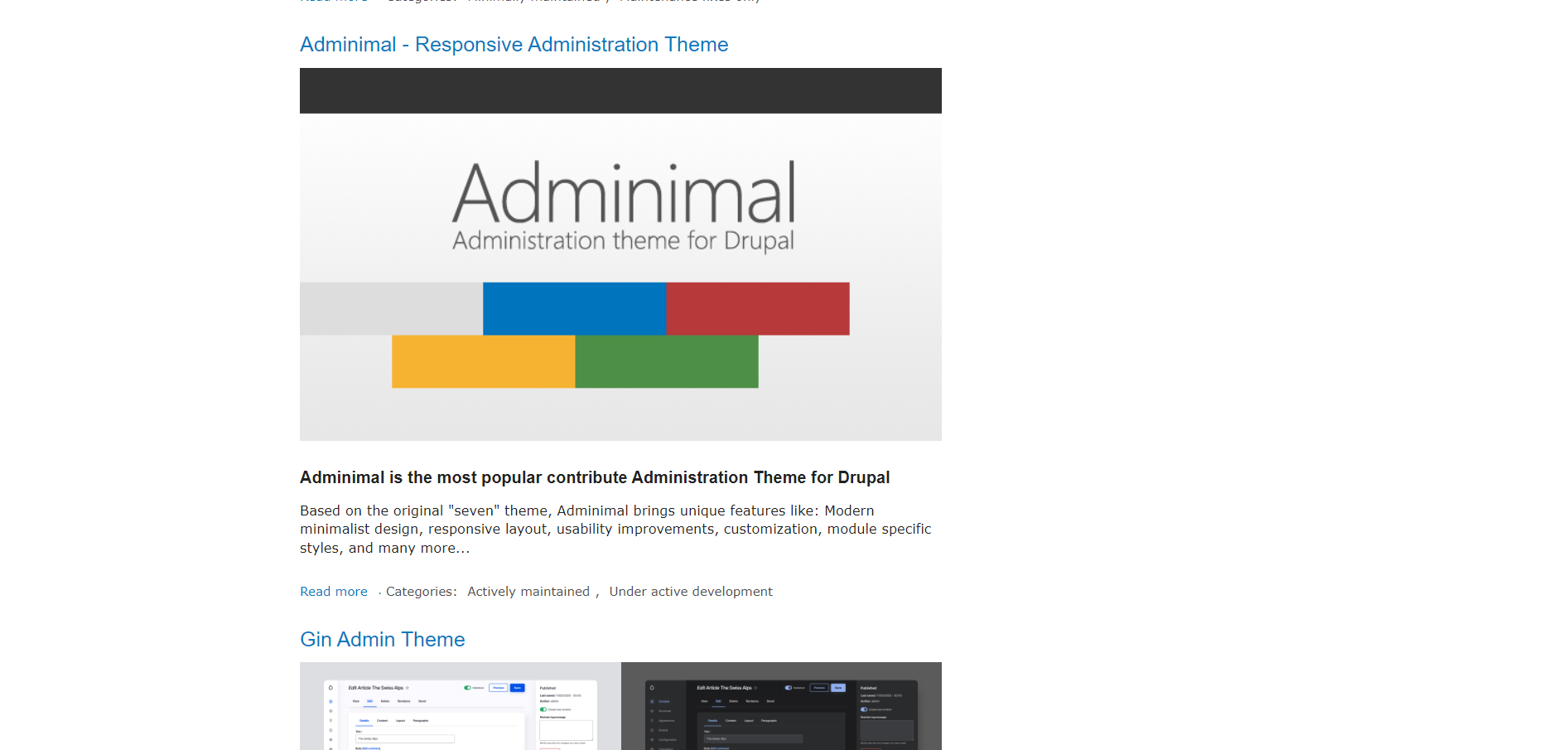
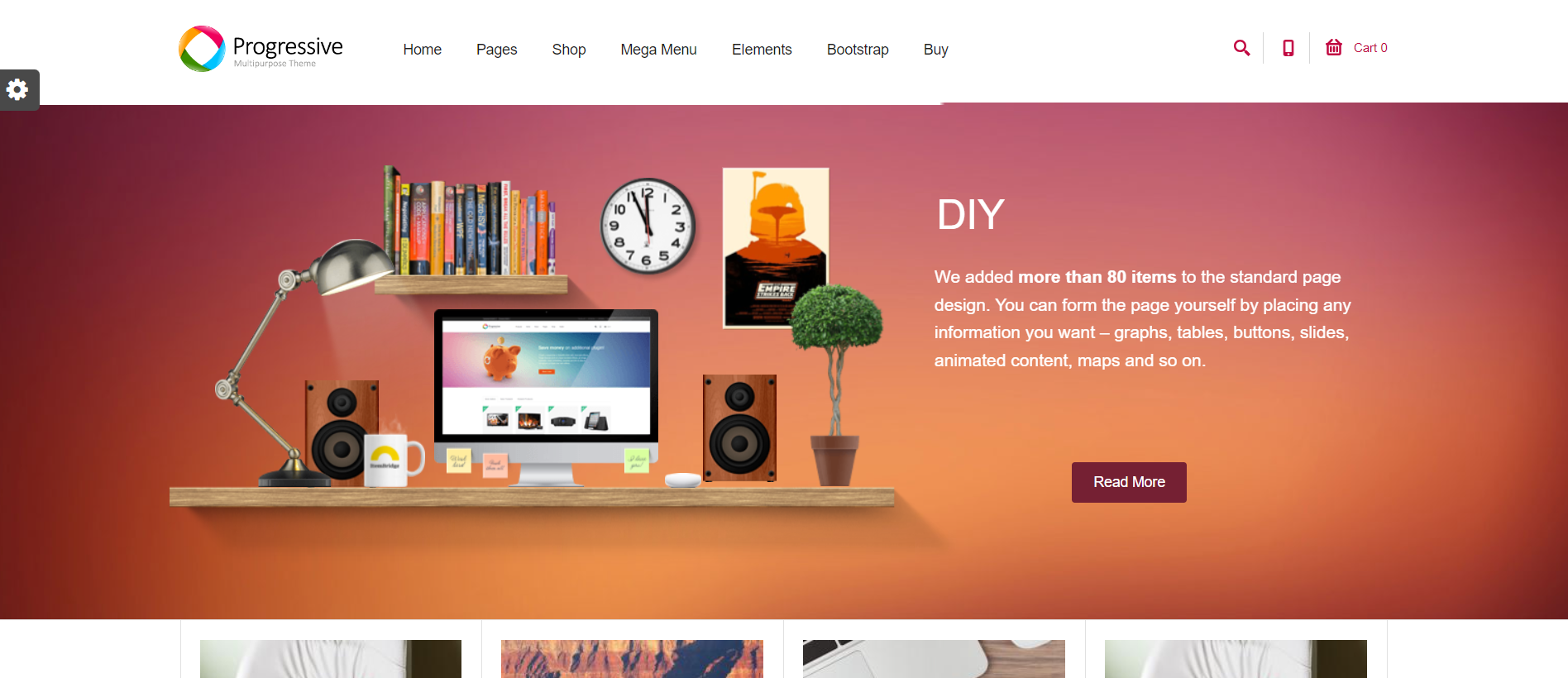
On the other hand, Web.com offers over 100 website templates designed to cater to a broad spectrum of industries and personalization needs. These templates are structured to be straightforward in customization, allowing users to easily adapt their chosen designs to suit their unique brand identity through the platform’s editor. However, while the platform facilitates template customization and offers numerous pre-made layouts, it may not provide the most advanced features for all customization desires.
Get a head start on website creation with AI
Create a custom website tailored to your business needs 10X faster with 10Web AI Website Builder!
Ease of use
Ease of useReflects the platform’s overall user-friendliness.Score
Components:
- Learning curve (40%): Quickness and ease of getting started.
- Interface design (30%): Simplicity and intuitiveness of layout.
- User guidance (20%): Quality of tutorials and support.
- Flexibility (10%): Adaptability to various user skills.
 5.4
5.4
 6.4
6.4
🏆 Winner: Web.com
. Scoring 6.4, Web.com is recognized for its wide range of templates and robust customization tools, making it easier for users to create and manage their websites. Drupal, with a score of 5.4, offers a powerful platform but with a steeper learning curve, especially for those new to web development. If ease of use is a priority, Web.com is the clear winner in this category.
Learning Resources
🏆 Winner: Drupal
. While both platforms offer solid learning resources, Drupal goes a step further with its extensive official documentation, vibrant community forum, and a variety of online courses and tutorials, making it easier for users to learn and adapt.
For ecommerce
EcommerceMeasures the platform’s effectiveness in supporting online business activities.Score Components:
- Ecommerce themes and templates (20%): Variety and design of templates.
- Product management (25%): Ease of managing and organizing products.
- Payment options (25%): Variety and convenience of payment methods.
- Ecommerce features (20%): Features for managing an ecommerce store.
- Integration (10%): Compatibility with external e-commerce tools and services.
 7.5
7.5
 6.3
6.3
When it comes to ecommerce, Drupal and Web.com offer different approaches. Drupal, with its Drupal Commerce module, provides a flexible ecommerce solution that can be seamlessly integrated into its content management system. It offers a wide array of features including product management, shopping cart, payment gateway integration, and customizable workflows. However, it has a steep learning curve and may require extensive customization to meet specific ecommerce needs.
On the other hand, Web.com offers a suite of ecommerce features aimed at simplifying the creation and management of online stores. It includes AI-driven design options, customizable templates, and secure payment solutions. However, it has a complex setup process and limited template variety, which might restrict creative freedom.

|

|
|
|---|---|---|
|
Ecommerce themes and templates |
7.8 |
5.5 |
|
Product page customization |
8.3 |
6.0 |
|
Payment processing and commissions |
7.5 |
6.5 |
|
POS capabilities |
5.5 |
4.0 |
|
Payment gateways |
7.7 |
7.0 |
|
Product numbers |
7.0 |
5.0 |
|
Additional ecommerce features |
8.0 |
6.0 |
Drupal ecommerce features:
- Shopping Cart and Checkout Process
- Payment Gateway Integration
- Order Management and Invoicing
- Tax Calculation and VAT Support
- Shipping and Fulfillment
- Promotions and Discounts
- Reporting and Analytics
- Security and Compliance
Web.com ecommerce features:
- Product listing
- Marketing Features
- Shipping options
- Payment Gateways integration
Ecommerce themes & templates
Drupal offers a wide array of eCommerce themes designed to cater to different types of online stores. These themes are built with responsiveness in mind, ensuring that stores function seamlessly across various devices. Themes like Fiora, DrupalMag, and Storefront highlight the diversity available, offering customization options to match the unique needs of each business.
Web.com provides around 15 ecommerce templates designed to help businesses quickly launch and customize their online stores. These templates are compatible with Web.com’s website builder, facilitating straightforward customization and integration for digital storefronts.
Product page customization
Drupal offers extensive customization possibilities for product pages through its modular architecture, allowing for detailed content types, flexible displays with Views, and theme customizations. The Drupal Commerce module enriches e-commerce functionalities, enabling tailored product management, checkout flows, and payment systems.
Web.com’s website builder offers a suite of tools for e-commerce stores, including product category management for organizing inventory and improving navigation, and product listing features for adding detailed product information and images. Users can create and manage product variants to accommodate items with multiple options, enhancing the customer shopping experience.
Payment processing
Drupal supports a wide range of payment gateways through third-party modules, including popular ones like PayPal, Stripe, and Authorize.Net. These modules enable seamless integration for e-commerce functionalities on Drupal sites. While Drupal itself does not charge any commissions or transaction fees, the individual payment gateways integrated with it do have their own fee structures.
Web.com supports popular payment gateways like PayPal, Stripe, and all major debit and credit cards, ensuring a wide array of payment options for customers. Details on transaction commissions, particularly whether Web.com imposes additional fees on transactions processed through these gateways, were not clearly stated in the reviewed sources.
Website Editors
Website EditorsEvaluates the platforms’ website building and editing capabilities.Score Components:
- Customization tools (40%): Range and power of editing features.
- Editor usability (30%): User experience within the editor.
- Design flexibility (20%): Freedom in layout and design changes.
- Update and maintenance ease (10%): Simplicity of updating and maintaining the site.
 7.5
7.5
 6.6
6.6
🏆
Winner: Drupal
. Drupal, with a score of 7.5, offers a wide range of features tailored for content creation and management. It supports rich text editing, enabling users to format text, insert links, images, and media, as well as create tables and lists with ease. The editor is highly customizable, allowing administrators to configure toolbars and options according to the needs of their site. Furthermore, it integrates seamlessly with Drupal’s content management system, supporting features like automatic content saving, version control, and access control, making it a powerful tool for building and managing diverse web content.
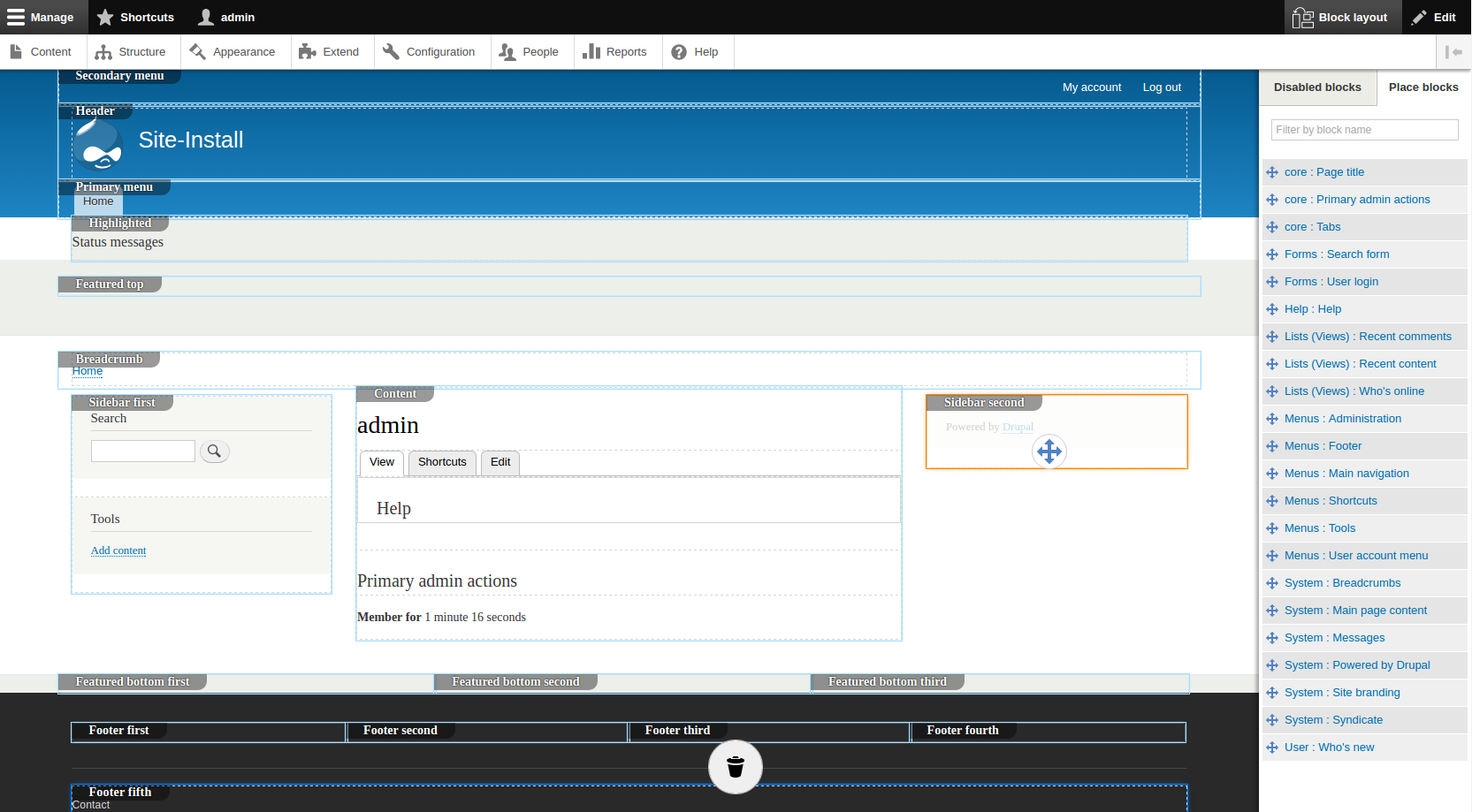
Web.com’s website builder, scoring 6.6, offers a user-friendly platform with a variety of templates and a drag-and-drop interface for easy customization. It supports basic e-commerce capabilities suitable for small businesses, alongside features like analytics, social media integration, and email services. However, for more advanced functionalities like promotional pop-ups, calendars, or comprehensive blogging tools, the platform may fall short unless users are willing to add custom code.
Mobile editor/app
 0
0
 0
0
🏆
Winner: None
. Both Drupal and Web.com do not offer a dedicated mobile editor app. Therefore, website editing and management on mobile devices may not be as convenient or efficient as on desktop. This could be a potential drawback for users who prefer or need to make changes to their websites on the go.
Drupal, on the other hand, does not have a dedicated mobile app for website editing. However, it does offer a responsive design that adjusts to different screen sizes, making it possible to edit websites on mobile devices through a web browser. But this may not provide the same level of convenience and efficiency as a dedicated mobile app.
Web.com also does not have a dedicated mobile app for website editing. Like Drupal, it offers a responsive design that adjusts to different screen sizes. This means that users can edit their websites on mobile devices through a web browser. However, this may not be as convenient or efficient as using a dedicated mobile app.
In summary, neither Drupal nor Web.com offer a dedicated mobile app for website editing, which could be a potential drawback for users who prefer or need to make changes to their websites on the go. However, both platforms offer a responsive design that adjusts to different screen sizes, making it possible to edit websites on mobile devices through a web browser.
Product testing options
Product Testing OptionsAssesses the options for trying out platform features before commitment.Score Components:
- Trial quality (40%): Extent and usefulness of the trial or free version.
- Feature accessibility (30%): How many features are available to test.
- Trial duration (20%): Length of the trial period.
- Ease of transition (10%): Smoothness of moving from trial to paid plans.
 7.1
7.1
 0.2
0.2
Overall Result
:
Drupal Wins
. Drupal scores 7.1, significantly higher than Web.com’s 0.2. Drupal, being an open-source CMS, offers a free version but no trial version or premium features testing. On the other hand, Web.com does not offer a free or trial version, and it’s not possible to test any of the features before purchasing. However, they provide a 3-day money-back guarantee.

|

|
|
|---|---|---|
|
Free Plan |
Yes (open-source software) |
No |
|
Trial Duration |
No | No |
|
Testing Premium Features |
No | Not possible |
|
Money Back Guarantee |
Not applicable |
3 days |
Price
PriceLooks at the cost-effectiveness and value for money of each platform.Score Components:
- Plan value (40%): What each pricing tier offers.
- Transparency and clarity (30%): Clearness of pricing structures.
- Flexibility of plans (20%): Range of options to suit different budgets.
- Hidden costs (10%): Additional expenses not included in the plan.
 5.7
5.7
 7.4
7.4
Web.com offers a range of price plans with different features, while Drupal is a free open-source platform, but requires separate purchases for domain, hosting, and website builder subscriptions.

|

|
|
|---|---|---|
|
$10-$20 |
No offering at this amount. |
Website ($19.99/month): AI-powered Website Builder. Free domain & domain privacy for 1 year. Professional email for 3 months. SSL Certificate for 1 month. 1 hour expert design support. Social & email marketing tools. Value for price: 6.5 |
|
$20-$30 |
No offering at this amount. |
Website + Marketing ($24.99/month): All features in the Website plan. Enhanced marketing tools. Appointment scheduling. Value for price: 7.0 |
|
$30+ |
No offering at this amount. |
eCommerce ($34.99/month): All features in the Website + Marketing plan. Online store with secure checkout. Sell on multiple marketplaces like Facebook, Instagram, Amazon, eBay, etc. Value for price: 8.5 |
location. As a result in rare cases the prices displayed here can differ from the ones you see on their
websites.
Hosting quality
Hosting
qualityExamines the reliability and performance of the hosting solutions.Score Components:
- Uptime (40%): Consistency and reliability of website availability.
- Speed (30%): Loading times and performance.
- Bandwidth and storage (20%): Sufficiency of resources provided.
- Data centers (10%): Quality and distribution of hosting infrastructure.
 0
0
 5.9
5.9
🏆
Winner: Web.com
Web.com offers shared hosting with unlimited storage and daily backups, making it a more straightforward choice for users who prefer an all-in-one solution. Drupal, being an open-source CMS, does not directly provide hosting services, hence the hosting quality depends on the chosen hosting provider. This flexibility can be a strength for experienced users who want to choose their own hosting, but it can also be a complexity for less tech-savvy users.

|

|
|
|---|---|---|
|
Do they offer hosting? |
No | Yes |
|
Data Centers: |
Depends on hosting provider | Not disclosed |
|
Type of hosting: |
Depends on hosting provider | Shared hosting |
|
Uptime: |
Depends on hosting provider | Not provided |
|
Uptime Guarantee: |
Depends on hosting provider | Not provided |
Website Speed Optimization
Website Speed OptimizationEvaluates optimization of website loading timesScore Components:
- PageSpeed Score (30%): Google’s score indicating performance optimization.
- Loading Time (30%): The average time until a website is fully interactive.
- Mobile Optimization (15%): Optimization effectiveness for mobile devices.
- Resource Optimization (15%): Optimizing images, scripts, and other heavy resources.
- CDN Usage (10%): Use of CDN to enhance speed across geolocations.
 6.4
6.4
 5.8
5.8
🏆 Winner: Drupal
Both Drupal and Web.com have strategies in place for website speed optimization, but Drupal’s open-source nature and extensive guides and tutorials give it an edge over Web.com.

|

|
|
|---|---|---|
|
Focus |
Extensive guides and tutorials |
Mobile Optimized design, Code Minification |
|
Performance Tools |
User-dependent |
Caching, Image Optimization |
|
Key Strategies |
Users can optimize almost all aspects |
Mobile design, Code Minification, Caching |
|
Load Times |
Varies depending on optimization |
Varies depending on optimization |
|
Page Speed Scores Range |
Varies depending on optimization |
Varies depending on optimization |
|
Core Web Vitals Improvement |
User-dependent |
No information provided |
Drupal, an open-source content management system, offers numerous guides and tutorials on speed optimization, allowing users to optimize almost all aspects of their website. The load times and PageSpeed scores vary depending on the level of optimization and website complexity. Improvements in Core Web Vitals are also dependent on the users, as they have the flexibility to optimize their website as per their needs.
On the other hand, Web.com, a website builder, focuses on mobile-optimized design, code minification, caching, and image optimization for speed optimization. However, like Drupal, the load times and PageSpeed scores vary depending on the level of optimization and website complexity. Web.com does not provide any information on their improvements in Core Web Vitals.
Get a head start on website creation with AI
Create a custom website tailored to your business needs 10X faster with 10Web AI Website Builder!
Plugins and integrations
Plugins and integrationsMeasures the range and effectiveness of additional plugins and integrations.Score Components:
- Variety of options (40%): Range of available add-ons.
- Integration smoothness (30%): Ease of integrating plugins into the site.
- Quality of plugins (20%): Functionality and reliability of the options.
- Custom integration capabilities (10%): Support for custom or third-party integrations.
 8.6
8.6
 6.7
6.7
🏆 Winner: Drupal.
With a score of 8.6, Drupal leads the way with its extensive range of over 51,000 free and open-source plugins, known as modules. These modules are designed to enhance and tailor Drupal applications to specific needs, emphasizing the platform’s flexibility and openness. Web.com, with a score of 6.7, offers a suite of plugins and integrations, but more sophisticated features might require an upgrade to higher-tier plans or involve additional fees.
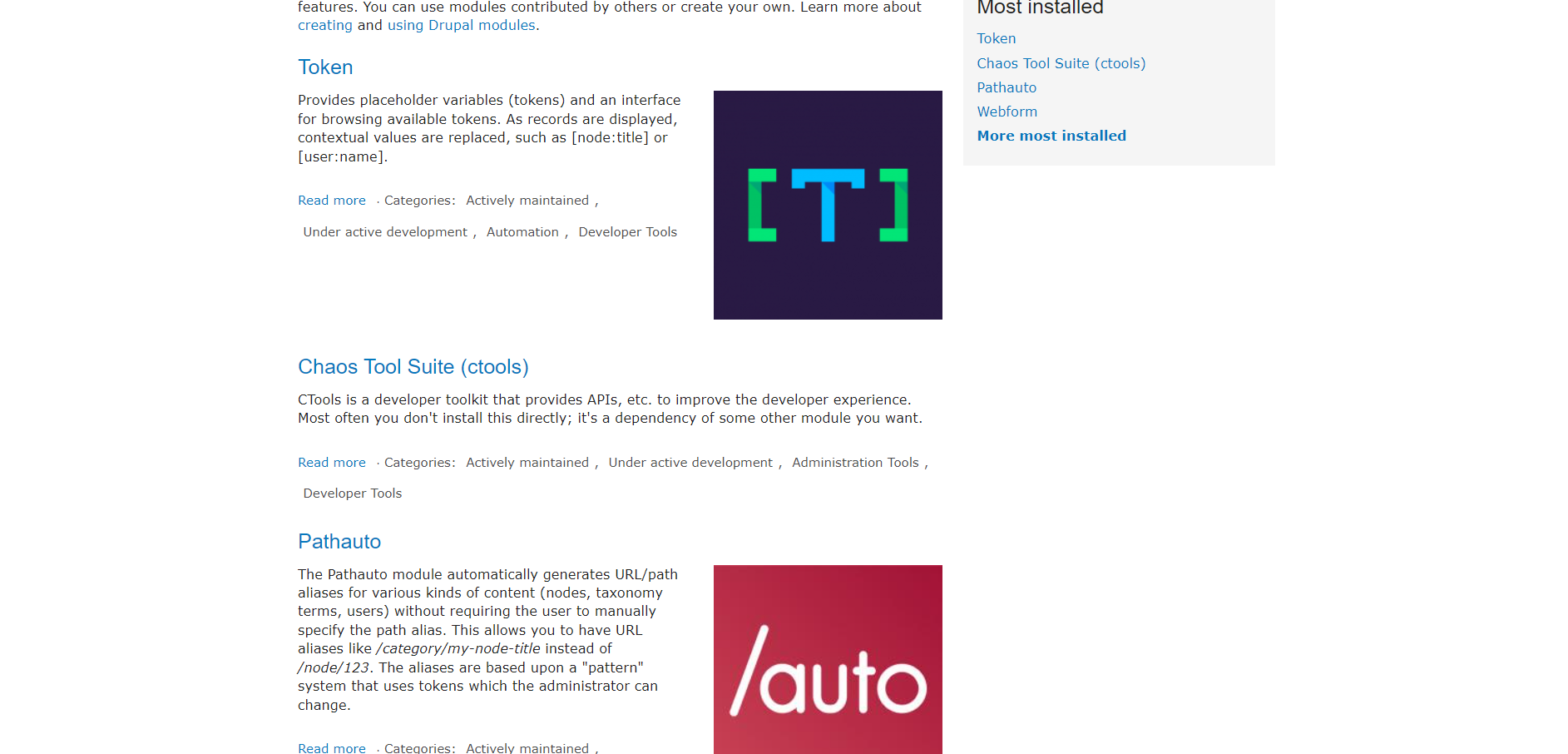
Marketing Features
Design FunctionalitiesRepresents how well each platform allows for creative design and customization of websites.Score Components:
- Template Variety (30%): Range and quality of design templates.
- Customization (30%): Flexibility and options for design alterations.
- User Interface (20%): Ease and intuitiveness of the design process.
- Responsiveness (10%): Adaptability to different devices and screen sizes.
- Innovation (10%): Unique design features and tools.
 8.0
8.0
 7.0
7.0
🏆
Overall Winner: Drupal
. Drupal stands out for its flexibility and extensibility, enabling developers to create complex websites with custom functionalities. Web.com is strong in mobile responsiveness and incorporates eCommerce capabilities, ideal for businesses looking to sell online.

|

|
|
|---|---|---|
|
SEO Tools |
|
|
|
Email Marketing |
|
|
|
Blogging |
|
|
|
Social Media Integration |
|
|
|
Analytics and Reporting |
|
|
|
Ads and Promotions |
|
|
Customer Support
Customer supportEvaluates the quality and availability of support options.Score Components:
- Response time (40%): Speed of support responses.
- Support quality (30%): Effectiveness and helpfulness of the support.
- Availability (20%): Range of support channels (phone, chat, email).
- Resource richness (10%): Quality of self-help and educational materials.
 6.7
6.7
 7.3
7.3
🏆 Winner: Web.com
. In the Drupal vs Web.com comparison, Web.com takes the lead in customer support with a score of 7.3. Web.com offers 24/7 support through email, live chat, and phone, ensuring users can get help whenever they need it. The 24/7 phone support is particularly praised for its prompt and direct assistance, making it a reliable option for immediate support needs.
Drupal, with a customer support score of 6.7, provides a comprehensive range of support options, including community support through forums and documentation on Drupal.org, and professional 24/7 support services via providers like Drupal Connect. While Drupal’s community support is extensive, the professional support services are often through third-party providers, which may not be as seamless as Web.com’s integrated support system.
Security
SecurityLooks at the platforms’ security measures and data protection.Score Components:
- Data protection (40%): Safeguards for user and customer data.
- SSL and encryption (30%): Implementation of secure connections.
- Compliance (20%): Adherence to industry security standards.
- Regular updates (10%): Frequency of security updates and patches.
 8.3
8.3
 7.6
7.6
🏆
Winner: Drupal
. Drupal’s security is highly configurable and robust, with a dedicated security team continuously working on identifying and fixing vulnerabilities. It offers advanced security features like two-factor authentication, role-based access control, and field permissions. Regular updates and security audits are essential to maintain the site’s integrity.
Web.com, on the other hand, provides security measures through its partnership with SiteLock Security, offering cloud-based services that scan websites for malware and vulnerabilities. It also provides SSL certificates, website backup solutions, and cybersecurity measures. However, it falls slightly short when compared to Drupal’s comprehensive and proactive security approach.
AI Capabilities
AI capabilitiesMeasures the effectiveness of AI-driven features and tools.Score Components:
- Automation efficiency (40%): Impact of AI on streamlining processes.
- Personalization (30%): AI-driven customization for users or customers.
- AI-Assisted design (20%): Role of AI in website design and functionality.
- Data analysis (10%): Use of AI in interpreting user data and analytics.
 7.5
7.5
 7.3
7.3

|

|
|
|---|---|---|
|
AI Website Builder |
|
Web.com offers an AI website builder |
|
AI Ecommerce Features |
Drupal integrates AI to enhance e-commerce |
Web.com uses AI to enhance the online shopping experience |
|
AI Content Generation |
Drupal uses AI to enhance content creation |
Web.com uses AI to generate content |
|
Additional AI Features |
Drupal can be enhanced with AI capabilities |
Web.com offers additional AI features |
🏆 Winner: Web.com
. Web.com’s AI capabilities, particularly its AI website builder, are designed to simplify the website creation process and make it accessible for users regardless of their technical skills. It also uses AI to enhance the online shopping experience, generate content, and offer additional features.
Drupal, with a score of 7.5, does not have an AI website builder, but it does integrate AI across various functionalities to enhance e-commerce and content creation. It can also be enhanced with AI capabilities through modules, third-party services, and custom development. However, compared to Web.com, Drupal’s AI capabilities are more technical and may require more expertise to utilize effectively.
User Management
User ManagementAssesses the platforms’ capabilities in managing user roles, permissions, and accessibility.Score Components:
- Role Customization (40%): Flexibility in creating and defining user roles and
permissions. - Ease of Management (30%): User interface and tools for managing users.
- Access Control (20%): Effectiveness of access control measures for different user
levels. - Scalability (10%): Ability to manage a growing number of users efficiently.
 9.1
9.1
 5.2
5.2
🏆 Winner: Drupal
. Drupal’s flexible permission and role system allows for an unlimited number of users to manage and edit a website, only constrained by server capacity and practical management considerations. Administrators can create various roles, such as “Editor” or “Administrator”, each with customized permissions. There’s no inherent limit in Drupal on the number of users with administrative or editing capabilities, enabling extensive collaboration and content management possibilities. On the other hand, Web.com allows multiple user accounts, however the platform does not specify how many accounts are supported.
Drupal User Roles and Access Levels:
| Role | Description | Access Highlights |
|---|---|---|
| Editor | Users responsible for content creation, editing, and publishing. | Can create, edit, delete, and publish content; can also manage comments. |
| Moderator | Users focused on site moderation, including comment and user management. | Can approve or delete comments, block users, and manage reported content. |
| Administrator | Users with full access to all administrative features of the site. | Can change site configuration, manage all content, users, permissions, and install modules/themes. |
Web.com User Roles and Access Levels:
| Role | Description | Access Highlights |
|---|---|---|
| Primary | The main account holder or primary user. | Edit primary user info Purchase products Manage and renew products and services |
| Admin | Users with administrative privileges besides the primary. | Edit payment information Add/Edit/Delete user roles Manage and renew products and services Edit WHOIS Admin and Tech user info |
| Tech | Users with technical responsibilities. | Manage and renew products and services Edit WHOIS Admin and Tech user info |
Additional Features

|

|
|
|---|---|---|
|
SSL Certificate |
|
|
|
Custom Domain |
|
|
|
Free Custom Domain Included |
|
|
|
International Domains |
|
|
|
Mobile Responsive |
|
|
|
Page Speed |
|
|
|
Website Builder Mobile App |
|
|
|
Convert a Website To An App |
|
|
|
Website Analytics |
|
|
|
Multilingual Sites |
|
|
|
Multiple Users |
|
|
Drupal vs Web.com: User Feedback
Users appreciate Drupal for its ease of use, security, and flexibility as an open-source CMS, highlighting its ability to scale and support a variety of websites and applications with modern technology tools. The community and documentation are frequently mentioned positives, providing ample support and resources. However, criticisms include a relative lack of plugins and themes compared to competitors like WordPress, the learning curve for customization without coding, and some challenges with installation and updates. The platform is praised for its robust content management capabilities, enabling users to manage content and user access efficiently. Overall, feedback underscores Drupal’s strength in creating secure, customizable, and scalable web solutions, despite some desires for more intuitive UI and easier setup.
Web.com, while not available on G2 platform, is known for its user-friendly drag-and-drop functionality and pre-built templates, making it accessible for those without coding expertise. It emphasizes mobile responsiveness and includes eCommerce capabilities, SEO tools, and analytics features. This makes it a suitable choice for both novice and seasoned users looking to establish or enhance their online presence. However, the absence of detailed user feedback makes it challenging to compare directly with Drupal in terms of user satisfaction and specific strengths or weaknesses.
The making of this blog
We followed a clear, step-by-step process to write and research this article.
Drupal vs Web.com: FAQ
Which platform is better for complex websites, Drupal or Web.com?
Can I build an ecommerce website with both Drupal and Web.com?
How do Drupal and Web.com compare in terms of ease of use?
What about the hosting quality between Drupal and Web.com?
Which platform offers better customer support?
Are there any differences in security features between Drupal and Web.com?










